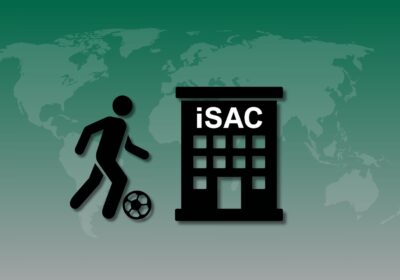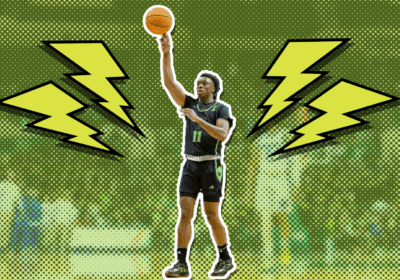Commentary: Sports talk radio a source of comfort amid a pandemic

When sports effectively shut down for an indeterminate amount of time in March due to the coronavirus (COVID-19) pandemic, it was not unreasonable to ask, “What in the world is sports talk radio going to do?” and the obvious follow up, “Where do these outlets fit in a world without sports?”
Content has been surprisingly easy to fill for show hosts, even after the initial shock of the sports world standing still set in. The ramifications of such cancellations, what happens next, will NCAA student-athletes get their year of eligibility back — all those were talking points the first week alone.
The NFL — a bit tone-deaf, but also trying to conduct offseason business when it can — then let free agency begin as planned. For the most part, it went off without any problems, and everyone was talking about something normal for a change. The NFL is determined to hold the draft as scheduled — albeit in a remote version — starting April 23, so that should get things through the rest of the month.
Then there are the stories that develop every so often about how various leagues intend to resume play, like how Major League Baseball is working to start its season in a virtual bubble in the Phoenix area as soon as May. As far-fetched as that and the ideas of the NHL and NBA playing their postseasons in North Dakota and Las Vegas, respectively — that’s still content that, if nothing else, fill air time, especially if coupled with spicy hot takes and listener calls.
But sports talk radio is serving a bigger purpose than just being a content creator right now. Perhaps a bigger one than could ever have been envisioned when the format began in 1967 with the first sports talk show, hosted by Bill Mazer at New York’s WNBC-AM. (Coincidentally, WNBC became the world’s first all-sports station, WFAN, on July 1, 1987.)
What sports talk radio is right now is what radio as a whole is — “comfort food,” as a recent Nielsen article called it.
So many things that we once took for granted are gone, even if temporarily: Live sports, going to bars and restaurants, seeing our friends — in person, at least. The ability to turn on the radio and hear the same voices we know, trust and love — OK, maybe we don’t love them all — during this difficult time is impossible to overstate.
As a result of layoffs at parent company Entercom, national network CBS Sports Radio has effectively merged its weekend programming with WFAN, leading to some New York voices being heard nationally who otherwise wouldn’t be.
Steve Somers, who has been with WFAN since its inception, is hosting Saturday nights on the network, leading to New York area expats calling and saying how good it is to hear his voice again, as well as locals calling just to chat with the radio veteran for a bit.
It’s felt like a local WFAN show at times, but it also shows how the format is able to bring people together during challenging times, even if it is just to talk about someone who played for the 1986 Mets.
The network’s weekday programming, headlined by midday host Jim Rome, has been unchanged amid the pandemic, although its TV simulcasts on CBS Sports Network have been altered to stripped-down versions of their usual selves.
Say what you want about Rome’s brash personality, but even his most adamant hater should be able to feel some sense of comfort turning the radio on and hearing his voice right now. Notorious for not taking listener phone calls, Rome has even been actively encouraging calls, recognizing his part in bringing a sense of normalcy to the airwaves.
Rome, Somers and seemingly everyone I’ve listened to in sports talk radio recently have been excellent amid this pandemic. They’re keenly aware of where sports fit into our society, and right now, they need to be an afterthought. But they also realize how important sports are to the country’s psyche, especially in times of crisis.
While it’s as important as ever to keep up with world, national and local news, it’s incredibly easy to get dragged down watching TV news as it throws sad story after sad story at you.
Every so often, even if for a few minutes, you need a little comfort food.







